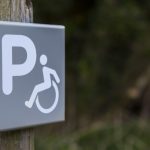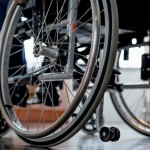A collaboration between the NDIA and the RACGP is a good start, but more can be done to include GPs, one expert says.
The role of GPs in helping patients access the National Disability Insurance Scheme (NDIS), which was first launched in 2013, has been given a strong nod by the scheme’s governing agency with a suite of practical resources made in collaboration with the RACGP.
The online information for GPs and other health professionals includes guides such as a six-point patient eligibility checklist and a video of tips from experienced GPs on providing evidence to support an access request.
Some 400,000 people are now enrolled in the NDIS, which is run by the National Disability Insurance Agency (NDIA).
But its rollout has been plagued by complaints including the long wait for patients to have plans approved or implemented and the patchy and confusing information available for GPs, culminating in an independent review into how the scheme’s processes could be simplified.
GP and chair of the RACGP disability special interest group Associate Professor Robert Davis said the resources were intended to ease GPs through the requirements.
“We’ve done this to try to demystify the process for GPS: what is required of them, what happens within the system, what information they can share, and how they might be able to share it,” said Professor Davis, who has worked in the disability sector since 1991 and contributed to the development of the new resources.
“The rollout of NDIS has been a huge undertaking … you might argue that it would have been better if this was done earlier, or it would have helped in many of the assessments for people with disability to have a better interaction between the NDIA and GPs, and I guess this is in part a way to improve that.”
The collaboration followed a meeting between representatives of the college and of the NDIA, he said.
“The NDIA recognised there was a need to communicate better with various stakeholders, GPs amongst them. I guess out of that meeting came recognition from the NDIA of the resources that the RACGP has and the connectivity with tens of thousands of GPs across Australia.”
However, the collaboration is “certainly not the end of the story, but probably the start” of more recognition for the role of GPs in the national scheme, he added.
“It’s certainly an opportunity that the NDIA really needed to take up, when you think about where GPs sit and where these patients with disability sit in terms of access to various services, and GPs’ relationships with patients and their families, right through the process.”
One problem that has existed since the scheme’s inception has been a mismatch between how Medicare is structured and the time available for GPs, and what is needed for patients to access the scheme, Professor Davis said.
For example, there is still no MBS rebate available if a GP completes paperwork without the patient present, which can be difficult for some patients.
“I deal with people with developmental disability or intellectual disability so when they come to see me, they might need one or two carers to come with them. So they have to access the car, stay in the waiting room, and hopefully they can tolerate being in a waiting room with other people, and then see the doctor so that in itself is quite a long exercise,” Professor Davis said.
The RACGP has also endorsed other guides on the NDIS website including MBS billing scenarios and information specifically about patients with psychosocial disability, who experts say are often failed by the scheme.




